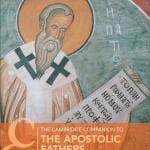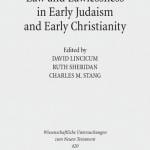Hinlicky, Paul R.
Luther for Evangelicals: A Reintroduction.
Grand Rapids: Baker Academic, 2018.
Available at Baker.
Review by Dr. Rhys Bezzant
There is lots of conversation about the state of evangelicalism, in the US and beyond, with a primary critique circling around its loss of theological foundations, or building on weak ones. So Hinlicky, professor at Roanoke College in south-west Virginia, has written a book to suggest that evangelicals should look again to the theology of Martin Luther. It sounds like an obvious place to start. Surprisingly, Luther is often touted as a hero for the Protestant cause, but his theology is unexplored, and even his doctrine of justification by faith is frequently misunderstood. We want to see Luther as one of us, but his late medieval life wrong-foots us. Going behind contemporary assumptions of what evangelicalism is to rediscover a strange but familiar Luther is a project worth pursuing. He might make us think again.
The first half of the book examines Luther’s theology through the prism of the Bebbington quadrilateral. The English doyen of the study of evangelical history, Bebbington provides a phenomenological definition, arguing that evangelicals have highlighted conversion, the Cross, missionary engagement and the Bible to create one of the modern world’s most influential Christian movements. And Luther has something to say about each of these, though he might find different categories for expression, and does so without appeal to individualism or experience as core assumptions. Hinlicky makes good use of Molly Worthen’s book Apostles of Reason as his evangelical conversation partner, where evangelicalism’s rationalist foundationalism is heavily critiqued, not Luther’s besetting sin as it turns out!
The second half of the book is less closely tied to making connections to evangelicalism, but more concerned with expounding Luther’s view of the Christian life through his Larger Catechism, perhaps his most systematic theological statement according to the author, which ultimately fleshes out Luther’s strengths in relation to evangelicalism’s weaknesses. Along the way, the author provides wonderful exposition of some Luther hymns, which pithily and beautifully summarise core convictions. These then appear in an appendix. Hinlicky, a lifelong Lutheran, treats Luther with nuance and in a book of only 160 pages, traverses lots of ground which is illuminating even for those of us who know some of the texts examined here.
In the end, this is a book which functions primarily as an introduction to Luther’s thought, and secondarily as engagement with the evangelical tradition. Though along the way the Oxford Handbook of Evangelical Theology is referenced, there is little sustained or expansive reflection on evangelicalism beyond the US, or evangelicalism’s most thoughtful proponents, like Jonathan Edwards. The best chapter is the one which examines Luther on the new birth, where the links to the evangelical cause are most easily made. It made my heart sing. And Hinlicky gave me the words of songs to help me out.
Dr. Rhys Bezzant is Lecturer in Church History at Ridley College, Melbourne, Australia












